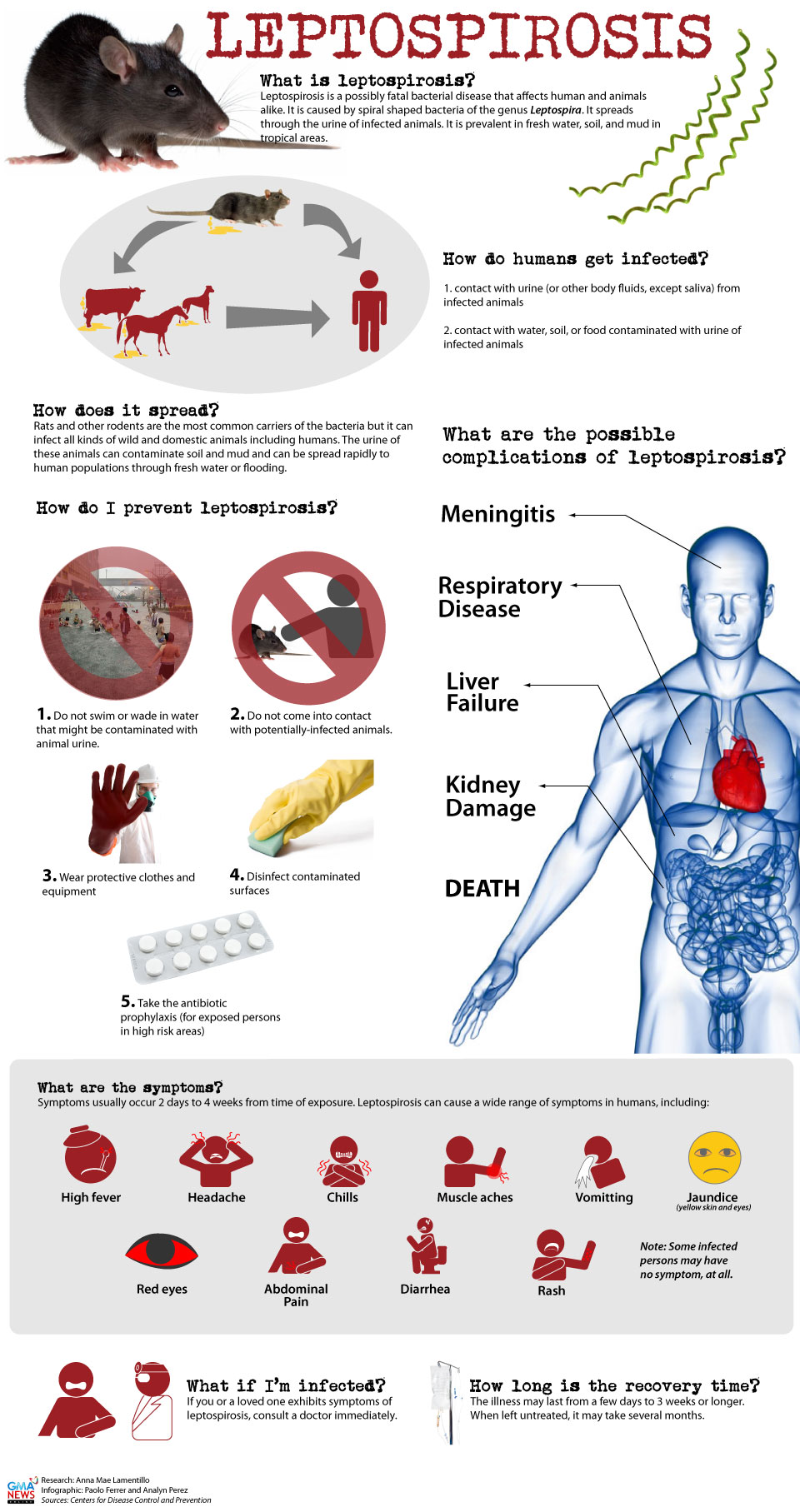Important Facts For Prelims
Leptospirosis Outbreak in Kerala
- 29 Aug 2024
- 5 min read
Why in News?
Kerala has recently experienced a sigh of relief as the threat of a Nipah virus outbreak diminished, with no new cases reported during the critical 42-day observation period.
- However, this respite has been overshadowed by the outbreak of Leptospirosis, commonly known as "rat fever."
- This bacterial infection has emerged as a pressing public health concern, particularly in the wake of monsoon-related challenges.
What are the Key Facts About Leptospirosis?
- About: Leptospirosis is caused by pathogenic spirochaetes of the genus Leptospira. These bacteria are zoonotic, meaning they are transmitted from animals to humans.
- Leptospires are bacteria that can be pathogenic. Pathogenic leptospires are found in the kidneys and genital tracts of certain animals and are the primary cause of leptospirosis in humans.
- Reservoirs: Many mammalian species can harbour leptospires in their kidneys, with rodents, cattle, pigs, and dogs being common reservoirs.
- Rodents are particularly significant as they can excrete leptospires throughout their lifespan without showing symptoms.
- Not all infected animals exhibit symptoms. Natural hosts often show no or few ill effects, but may develop illness after infection with another serovar (a distinct variation within a species of bacteria).
- Transmission: The disease is primarily transmitted through direct contact with the urine of infected animals or through contact with water, soil, or food contaminated with their urine.
- It can enter the human body through cuts, mucous membranes, or waterlogged skin. Rarely, the disease can be transmitted from human to human.
- Symptoms: It presents with a wide range of symptoms, from mild flu-like illness to severe conditions like Weil's syndrome (dysfunction of the kidneys and liver), meningitis, and pulmonary hemorrhage.
- The incubation period is typically 7-10 days, with symptoms such as fever, headache, and jaundice being common.
- Leptospirosis is often underdiagnosed due to its wide range of symptoms that mimic other diseases, and limited access to diagnostic tests.
- Epidemiology: It is a global disease but is most common in tropical and subtropical regions with high rainfall.
- It is particularly prevalent in South-East Asia, with India, Indonesia, Thailand, and Sri Lanka reporting most cases, especially during the rainy season.
- People in occupations with frequent animal contact, such as farmers, veterinarians, and sewer workers, are at higher risk.
- Prevention: Prevention involves controlling animal reservoirs, avoiding contact with contaminated water or soil, wearing protective clothing, and maintaining good sanitation practices.
- Dogs, pigs, and cattle can be vaccinated with serovar-specific vaccines. Immunisation helps prevent disease but may not eliminate renal carriage.
- Treatment: It is treated with antibiotics, such as penicillin G, doxycycline, and ceftriaxone.
India’s Initiatives Related to Leptospirosis
- Programme for Prevention and Control of Leptospirosis: Launched during the 12th Five-year Plan, this program aims to reduce the number of deaths and illnesses caused by leptospirosis.
- One Health Approach: This strategy integrates human, animal, and environmental health to control leptospirosis. One Health Approach emphasises the importance of a holistic approach to manage and prevent the disease.
Common Infections During the Monsoon
UPSC Civil Services Examination, Previous Year Questions (PYQs)
Prelims
Q. Consider the following statements: (2017)
- In tropical regions, Zika virus disease is transmitted by the same mosquito that transmits dengue.
- Sexual transmission of Zika virus disease is possible.
Which of the statements given above is/are correct?
(a) 1 only
(b) 2 only
(c) Both 1 and 2
(d) Neither 1 nor 2
Ans: (c)







